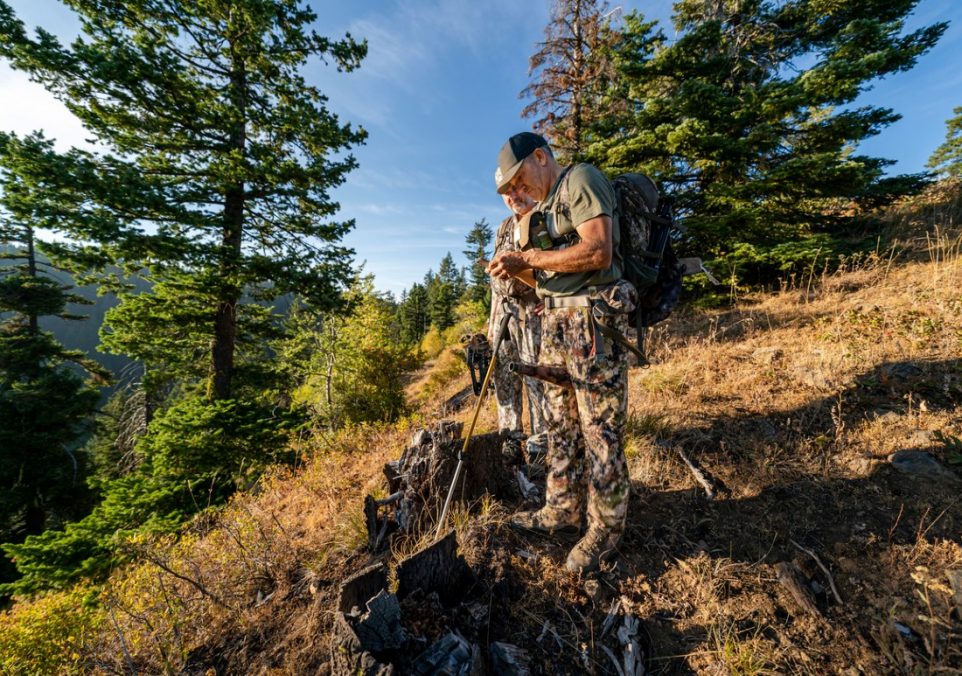The Dos and Don’ts of Elk Hunting

Elk hunting, an exhilarating blend of skill, patience, and adventure, beckons both seasoned hunters and novices seeking an authentic wilderness experience. Amidst the majestic landscapes and rustling forests, pursuing these magnificent creatures requires a mastery of hunting techniques and a profound respect for nature’s delicate balance.
Whether you’re a hunter eager to refine your craft or a curious newcomer ready to embrace the challenge, understanding the fundamental dos and don’ts of elk hunting is essential. This guide will illuminate the path to a successful and ethical elk hunting journey, ensuring that your pursuit is not just a quest for trophies but an immersive communion with the untamed outdoors.
The Dos
Do Your Research
Knowledge is your most powerful tool for elk hunting. Study the behavior, habitat, and migration patterns of elk in the area you plan to hunt. Understand your region’s regulations, permits, and seasons to ensure you’re hunting legally and ethically.
Practice Marksmanship
Accurate shooting is crucial for a humane and successful hunt. Regularly practice shooting from various distances and positions to improve your marksmanship skills. Familiarize yourself with your firearm or bow to ensure you’re comfortable and accurate when the moment of truth arrives.
Use Proper Gear
Invest in quality gear, including appropriate camouflage clothing, boots, and equipment. A reliable and well-maintained firearm or bow is essential. Remember to pack essentials such as a map, compass, tactical knife, first aid kit, protective shooting glasses, and enough food and water to sustain you throughout the hunt.
Scout the Area
Before the hunting season, scout the area to identify elk signs like tracks, droppings, and rubs. Understanding their patterns and preferred habitats will increase your chances of locating them during the hunt.
Practice Stealth and Patience
Elk have a keen sense of smell, excellent hearing, and sharp vision. Move quietly, avoid sudden movements, and use the terrain to your advantage to remain undetected. Patience is key – wait for the right moment to take a shot instead of rushing into a risky situation.
Respect the Animal
Elk hunting isn’t just about bagging a trophy; it’s about respecting nature and the animals you’re pursuing. Aim for a clean, humane shot that minimizes suffering. If you wound an elk, try to track it down and ensure a humane kill.
Follow Leave No Trace Principles
While hunting, minimizing your environmental impact is crucial. Pack out all trash, respect property boundaries, and be mindful of the ecosystems you’re traversing. Preserve the beauty of the wilderness for future generations.
Stay Safe
Safety should be your top priority. Let someone know your hunting plans and estimated return time. Carry a means of communication like a satellite phone or a GPS device. Be prepared for changing weather conditions and potential emergencies.
The Don’ts
Don’t Neglect Safety Measures
Never compromise on safety precautions. Always wear blaze orange or other visible clothing to ensure you’re easily identifiable by other hunters. Avoid shooting at sounds or movements without a clear target. Always treat your firearm or bow as if they’re loaded.
Don’t Trespass
Always hunt in areas where you have proper permission or permits. Respect private property boundaries and adhere to designated hunting zones. Trespassing damages relationships with landowners and tarnishes the reputation of responsible hunters.
Don’t Overcall
Using elk calls can be effective, but it’s important not to overdo it. Elk have a keen sense of hearing; they may become wary and avoid the area if they sense something unnatural. Use calls strategically and sparingly.
Don’t Forget Ethics
Ethical hunting involves respecting animals, the environment, and fellow hunters. Avoid taking unethical shots, such as those that are too long or in risky situations. Remember, hunting is about the experience and the challenge, not just the kill.
Don’t Ignore the Rules
Follow hunting regulations and guidelines to the letter. These rules ensure elk populations’ sustainability and preservation of the natural ecosystem. Ignoring them can result in fines, penalties, and ecological harm.
Don’t Leave Traces
Avoid leaving behind any traces of your presence. This includes not only trash but also unnecessary disturbances to the environment. Minimize your impact by sticking to established trails and campsites.
Don’t Underestimate the Wilderness
Elk hunting often occurs in remote and challenging terrains. Don’t underestimate the ruggedness of the environment. Be prepared for changing weather, steep terrain, and potential navigational challenges.
Don’t Neglect Physical Conditioning
Elk hunting demands physical fitness. The terrain can be demanding, and tracking an animal after a shot might require hours of hiking. Maintain good physical conditioning to ensure you’re up to the task.
Conclusion
In conclusion, elk hunting is a thrilling and rewarding pursuit that requires a blend of skill, preparation, and respect for the animals and the environment. Adhering to the dos and don’ts outlined above can ensure a safer, more ethical, and more successful hunting experience. Responsible hunting contributes to wildlife conservation and allows you to connect deeply with the natural world.
Your Adventure, Our Experience
At TheCampingList, our dedication to authenticity and reliability stems from our own adventures in the great outdoors. Our team, comprised of seasoned experts in hiking, camping, climbing, cycling, fishing, and hunting, rigorously tests every product and shares insights drawn from real experiences. This hands-on approach ensures our reviews and guides meet the highest standards of durability, functionality, and comfort. Moreover, our platform thrives on the rich contributions and feedback from our vibrant community of enthusiasts. We pride ourselves on delivering unbiased, educational content that empowers and informs your outdoor pursuits. Trust in TheCampingList for genuine advice and support, where we're all about enriching your journey, every step of the way.